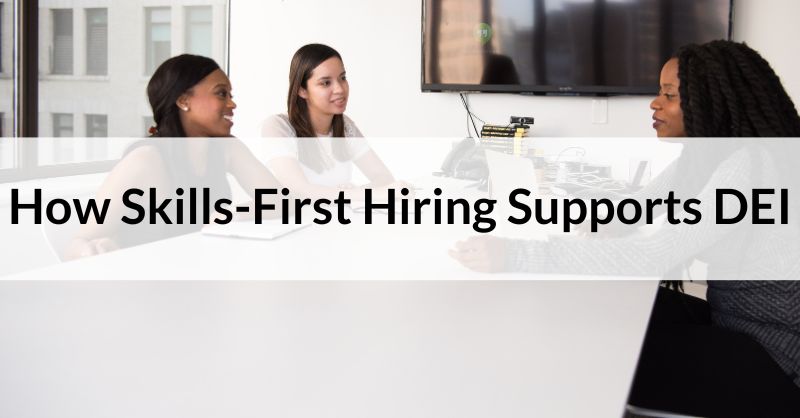.png)
Here's Why Micro-Internships are Always Paid
Last week, Rakshitha Arni Ravishankar wrote about Parker Dewey in a Harvard Business Review article, “It’s Time to Officially End Unpaid Internships.” Not only are unpaid internships unfair to college students (and often illegal): research shows that they hurt companies by hindering diversity efforts and undermining campus recruiting outcomes.
In fact, this is why top companies offer paid summer internships already. But even those organizations recognize opportunities to enhance these programs to further expand their recruiting pipeline and amplify diversity efforts. As NACE’s Assistant Director of Research and Public Policy highlighted in the article, this is why Micro-Internships have been such a powerful tool.
- Micro-Internships help you authentically engage and build relationships with prospective candidates from all backgrounds, while enhancing your existing DEI efforts. Because they’re short, flexible, and always paid, Micro-Internships help dismantle the most common barriers faced by candidates from underrepresented backgrounds.
- Landing a Micro-Internship isn’t reliant on GPA, school, major, or social connections—poor predictors of success in the workplace. That means more equitable pathways for students who might traditionally be filtered out and access to talent you otherwise might miss.
- Your company can engage students who know nothing about the breadth of opportunities you offer—or may have no familiarity with your organization, period. Micro-Internships help students and graduates explore beyond their major, degree, and even “what they think they should be doing,” giving your company exposure to a candidate pool that wouldn’t have considered you otherwise.
Check out the full article below for more insights.
Jeffrey Moss, Founder and CEO
Articles of the Week
It’s Time to Officially End Unpaid Internships - Harvard Business Review
The Labor Market Needs the ‘Soft Skills’ Older Workers Have - The Bulwark
Working to Learn: New Research on Connecting Education and Career - Project on Workforce at Harvard University
“‘You Cannot Fix Something You’re Unwilling to Face’” - Chicago Business
It’s Time to Officially End Unpaid Internships - Harvard Business Review
“While internships are highly valued in the job market, research also shows that 43% of internships at for-profit companies are unpaid. As a result, only young people from the most privileged backgrounds end up being eligible for such roles. For those from marginalized communities, this deepens the generational wealth gap and actively obstructs their path to equal opportunity.”
Creating equitable pathways is core to Parker Dewey’s Micro-Internships platform—and that means compensation for each and every Micro-Internship we facilitate. This article highlights how Micro-Internships benefit students and recent graduates while improving hiring, diversity, and retention outcomes for companies.
Related reading: Why Traditional Internships Aren’t Always an Option
The Labor Market Needs the ‘Soft Skills’ Older Workers Have - The Bulwark
“What we can and must focus on are strategies for developing human capital by leveraging natural human advantages—the capacity to learn, grow, respond, and adapt—to find frontiers where we continue to use tools rather than be used by them.”
At Parker Dewey, we’re proponents of those “soft” (or core) skills—critical thinking, decision making-making, communication, teamwork—because we know how vital they are in the early career stage. But even with the “increasing demand for decision-making skills,” companies continue to focus on academic pedigree and hard skills. This article takes a closer look at the value of soft skills for both new and seasoned workers.
Related reading: Soft Skills Rank at the Top of the List for In-Demand Entry-Level Professional Roles
Working to Learn: New Research on Connecting Education and Career - Project on Workforce at Harvard University
“‘Our research showed that many organizations purporting to connect both education and career are still struggling to do so...While standout organizations exist in the field, too few programs are linking soft and hard skills, prioritizing evidence, working with employers, or providing wraparound supports.”
As the pandemic winds down, this Harvard research team calls for better, more equitable pathways from education to employment—especially for workers from underrepresented communities, who have been most impacted by the economic downturn over this past year. This white paper identifies opportunities to bridge education and employment. (And this is why Parker Dewey’s Micro-Internships platform exists. These short-term, paid, professional projects create bridges in a way that benefits students, employers, and institutions alike.)
Related reading: About Parker Dewey
“‘You Cannot Fix Something You’re Unwilling to Face’” - Chicago Business
“You'll start hearing conversations about low-hanging fruit [when it comes to DEI efforts] — writing a check to the United Negro College Fund or the Thurgood Marshall Scholarship Fund. But building a recruiting partnership with one of the historically Black colleges or universities to diversify your talent, that's not low-hanging fruit. That takes time. That takes relationships. That requires building trust.”
Over this last year, we’ve heard company after company pledge to up their DEI efforts—but what do organizations actually need to do to move beyond “the notion of meritocracy” and instead create sustainable change? In this Q&A, Nicholas Pearce—a clinical professor of management and organizations at Northwestern University's Kellogg School of Management and founder and CEO of the Vocati Group—poses questions companies need to address before undertaking DEI efforts.
Related reading: Our Network
For more stories and insights on HR, recruiting, and diversity, click here to subscribe to our weekly newsletter Hire Learnings.


.png)

.png)